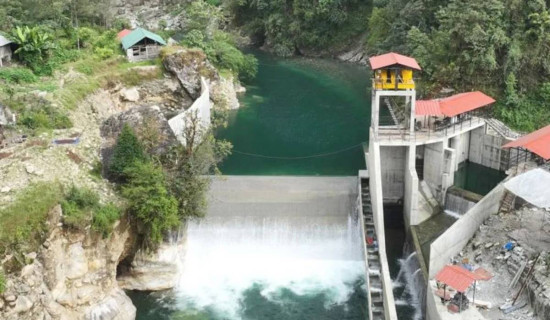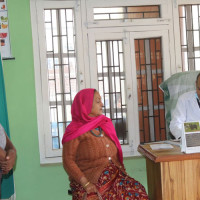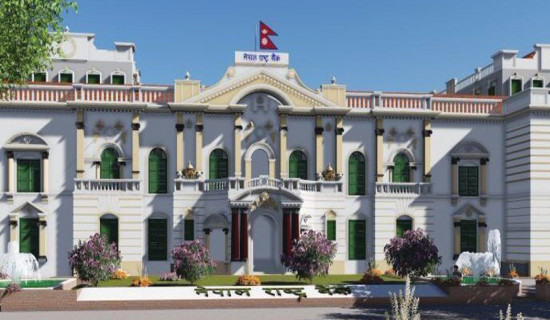- Saturday, 30 November 2024
Exemplary management of waste in two Chitwan municipalities
BY SHALIGRAM NEPAL,Chitwan, Nov. 30: At a time when local governments are struggling with the long-term challenges of waste management, two municipalities in Chitwan district have found a solution.
In Khairhani Municipality and Ratnanagar Municipality, a private organisation has been managing not only the waste produced by cities, homes and various institutions but has also been generating jobs and income by handling 18 tonnes of waste daily.
Clean Energy Pvt. Ltd., located in Khairhani Municipality, has been purchasing and managing waste from both municipalities for the past two years. With an investment from 70 individuals, including doctors and engineers, the organisation has successfully fulfil these responsibilities.
Yogendra KC, the operator of Clean Energy Pvt. Ltd., said, “We classify the waste from the municipalities, sell it and turn it into organic fertiliser for sale.” Of the waste collected from both municipalities, 70 per cent is used to generate income while the remaining 30 per cent is disposed of in a dumping area. He also said that plans were in place to install machines to make use of the remaining 30 per cent of the waste.
Clean Energy Pvt. Ltd. not only manages the waste but also produces fertiliser and other agricultural products. According to KC, waste is classified at the collection point before carrying to the facility. Once at the industry, biodegradable and non-biodegradable wastes are separated. The biodegradable waste is processed into organic fertiliser, which is packaged and sold after a few days. This fertiliser is often used by fruit and nursery growers. Additionally, food waste, including meat, is converted into gas that is used for cooking or lighting.
Non-biodegradable waste, such as plastic bottles and containers, is collected and sold to the plastic industry as raw material. Small plastic bags, torn bags and other thin materials are shredded into powder and sold as raw material for manufacturing grain-related products.
Paper products are sold to companies that produce egg crates. Unbroken glass bottles are resold for reuse, while broken glass is ground into powder and used to make interlocking bricks, which are used in construction.
Clothing waste is either repaired for reuse or shredded to produce cotton. Metals, tins and other materials are sold as raw materials to various industries, and shoes and other waste are supplied to relevant industries for processing.
The company purchases waste from the municipalities annually and pays a waste management fee. Decaying waste is transformed into organic fertiliser, branded as ‘Clean Fertiliser,’ which is sold in two and 20-kilogram packets.
Operator Niranjan Paudel said that the company had invested Rs. 12 million in the facility, which spreads over two bighas and 10 kathas of land. The industry currently employs 130 people, with 120 working full-time and the rest on a seasonal basis.
The company is capable of managing 90 metric tonness of waste daily. Although they requested permission to handle waste from Bharatpur Metropolitan City, the company has not been granted this, though they have been collecting waste from the city's vegetable market.

.jpg)













